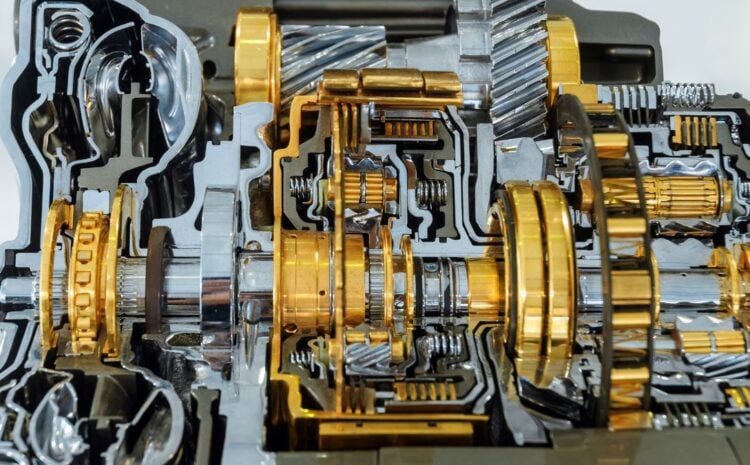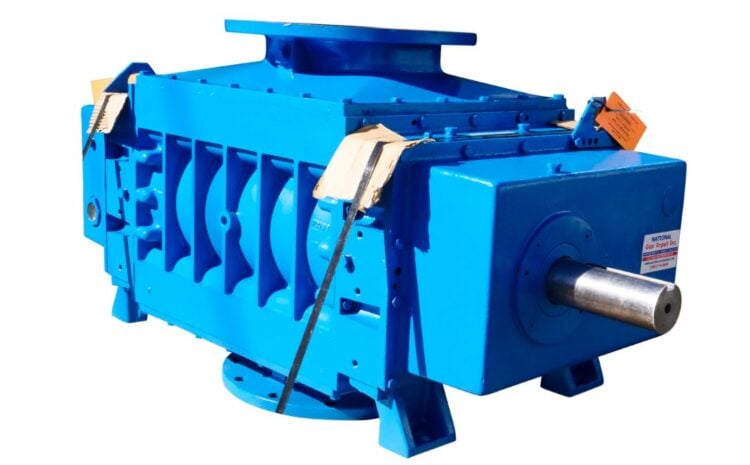Industrial gearboxes play a crucial role in the operations of many industries, from manufacturing to mining, by providing the necessary power transmission for various machinery. However, with the increasing focus on energy efficiency and sustainability, the impact of industrial gearboxes on these two important factors has become a topic of concern. In this article, we will explore what industrial gearboxes are, their role in energy efficiency and sustainability, and their impact on these crucial issues.
What are Industrial Gearboxes?
Industrial gearboxes are mechanical devices that are designed to transfer power from one machine component to another. They work by reducing the speed of a high-speed input shaft to a slower output shaft while increasing the torque of the machine. Industrial gearboxes come in a variety of types, including helical, planetary, and bevel gearboxes, and each type has its own unique set of advantages and disadvantages.
Energy Efficiency on Industrial Gearboxes
Energy efficiency is a critical issue in the industrial sector, as it not only saves on energy costs but also reduces the carbon footprint of the industry. In industrial gearboxes, energy efficiency is primarily influenced by the gearbox’s design, manufacturing process, and operating conditions. For example, poor lubrication, high operating temperatures, and misaligned gearboxes can all lead to increased energy consumption.
To improve energy efficiency in industrial gearboxes, there are several steps that can be taken. These include regular maintenance, the use of energy-efficient designs and materials, and the implementation of efficient operating procedures. For example, proper lubrication, regular cleaning, and the use of advanced cooling systems can help to reduce the operating temperature of gearboxes, leading to improved energy efficiency.
Sustainability in Industrial Gearboxes
Sustainability is another critical issue in the industrial sector, and it refers to the ability of an industry to operate in a manner that meets the needs of the present generation without compromising the ability of future generations to meet their own needs. In industrial gearboxes, sustainability is mainly influenced by the environmental impact of the manufacturing process, the materials used in the gearbox, and the operating conditions of the gearbox.
To promote sustainability in industrial gearboxes, industries can adopt a number of practices. These include the use of sustainable materials, such as recycled metals, in the manufacturing process and the implementation of environmentally friendly operating procedures, such as reducing the amount of waste produced during operation. Additionally, industries can also invest in renewable energy sources, such as solar and wind power, to reduce their carbon footprint.
The Impact of Industrial Gearboxes on Energy Efficiency and Sustainability
Industrial gearboxes can have both a direct and indirect impact on energy efficiency and sustainability. Directly, industrial gearboxes can consume a significant amount of energy, particularly if they are not properly maintained or operated. Indirectly, the industrial gear manufacturing process of industrial gearboxes and the materials used in their construction can also contribute to the carbon footprint of the industry.
Measuring the impact of it on energy efficiency and sustainability can be challenging, as it involves a complex interplay of factors, including the design and manufacturing process, operating conditions, and the maintenance practices in place. However, industries can adopt a number of metrics, such as energy consumption, carbon footprint, and waste production, to measure the impact of industrial gearboxes on these important issues.
Conclusion
Industrial gearboxes play a critical role in many industries’ operations and significantly impact energy efficiency and sustainability. To promote energy efficiency and sustainability in the industrial sector, it is essential that industries adopt efficient operating procedures, use sustainable materials, and invest in renewable energy sources. Additionally, regular maintenance and the use of energy-efficient designs can help improve industrial gearboxes’ energy efficiency.
The future implications of it on energy efficiency and sustainability are significant. As industries continue to adopt more sustainable and energy-efficient practices, it is likely that the impact of industrial gearboxes on these issues will continue to decline. This will help reduce the industrial sector’s carbon footprint while also helping to reduce energy costs and promote a more sustainable future.
Industry professionals and consumers are responsible for working together to promote energy efficiency and sustainability in the industrial sector. This can be done by promoting best practices, investing in renewable energy sources, and supporting industries that adopt sustainable operating procedures and materials. By working together, we can ensure that the impact of industrial gearboxes on energy efficiency and sustainability is reduced and that we are able to build a more sustainable future for generations to come.



